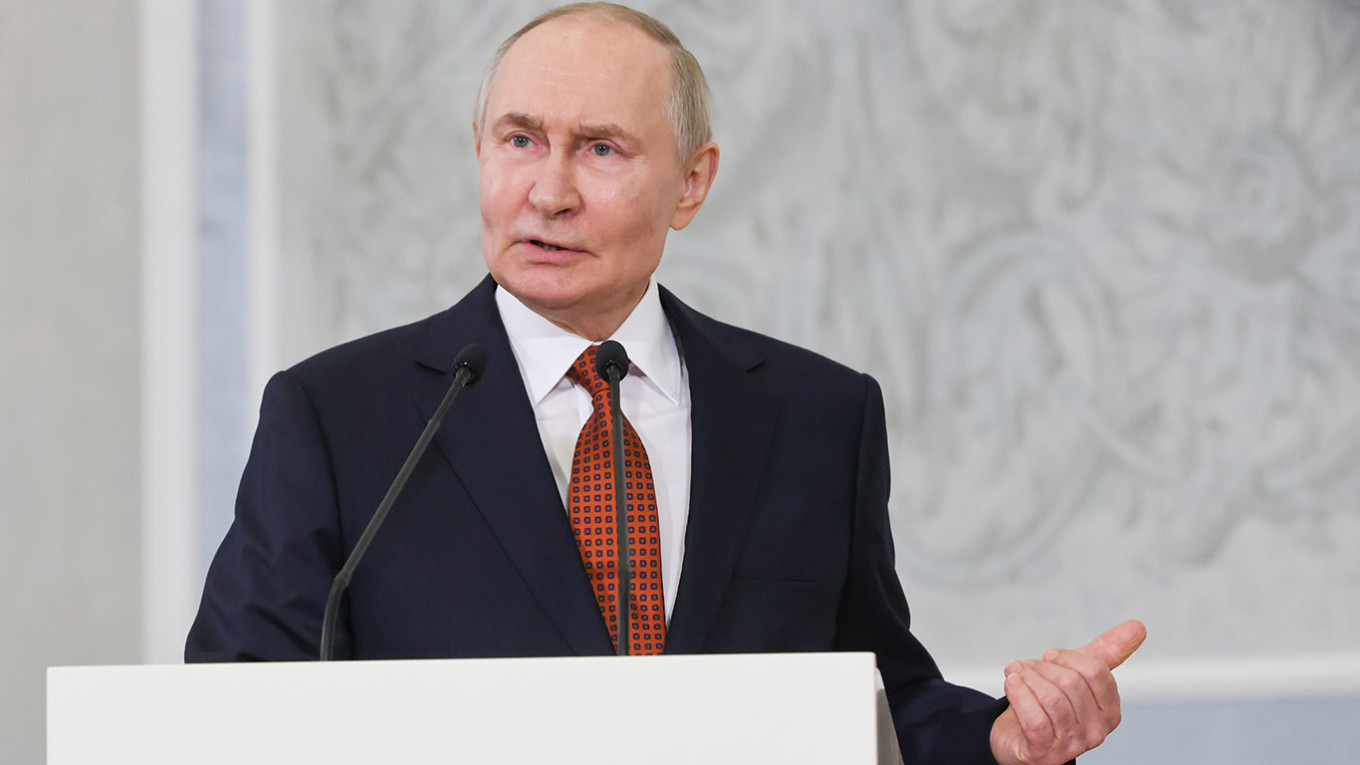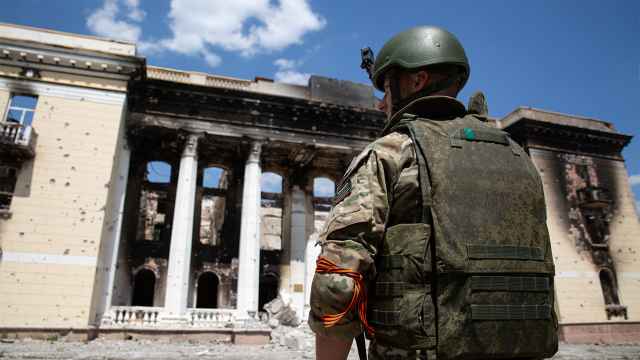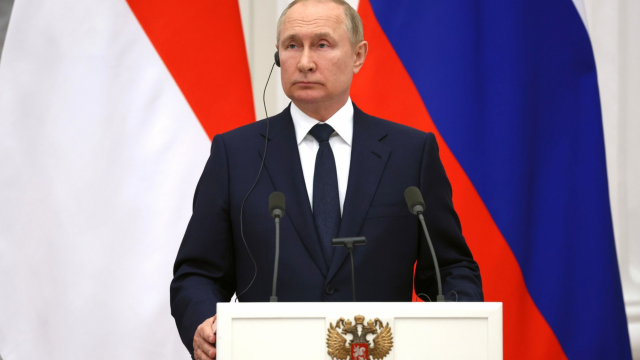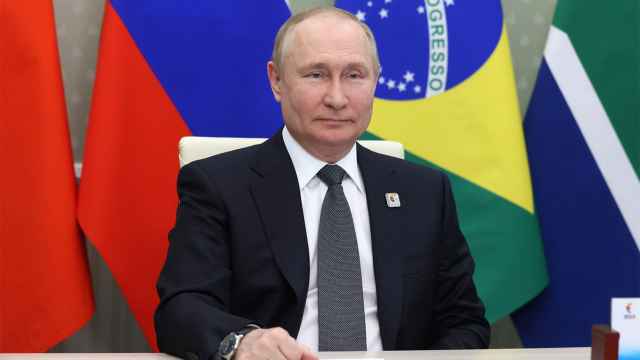President Vladimir Putin said Friday that Russian and Ukrainian demands for peace remain “absolutely contradictory,” as recent talks failed to bring the two sides closer to a ceasefire.
Russian and Ukrainian negotiators exchanged written proposals at peace talks in Istanbul earlier this month, but aside from agreeing on large-scale prisoner exchanges, the negotiations have yielded no tangible progress.
“As for the memorandums, as expected, nothing surprising happened... these are two absolutely contradictory memorandums,” Putin said during a press conference in Minsk, Belarus, referring to each side’s peace proposals.
“That’s why negotiations are being organized and conducted — to try to bring these positions closer,” he added.
Putin has so far rejected calls for an immediate ceasefire and ramped up air attacks as Russian forces advance further into Ukrainian territory, including beyond the four regions Moscow claims to have annexed since launching its full-scale invasion in February 2022.
Russia has demanded that Ukraine cede more land and abandon Western military support, conditions Kyiv has called unacceptable.
Despite the deadlock, Putin said both sides would “continue further contact” after completing prisoner swaps agreed to during the last direct talks on June 2.
Several exchanges have already taken place, with each side freeing more than 1,000 captured soldiers. Putin said Russia is prepared to return the bodies of an additional 3,000 dead Ukrainian soldiers.
The Russian president also acknowledged the strain the war has placed on the economy, with defense spending now accounting for 6.3% of GDP, or 13.5 trillion rubles ($172 billion).
“It’s a lot,” Putin said. “We paid for it with inflation, but now we are fighting this inflation.”
He also criticized NATO members for pledging to boost defense spending to 5% of GDP, calling the move “aggressive.”
A Message from The Moscow Times:
Dear readers,
We are facing unprecedented challenges. Russia's Prosecutor General's Office has designated The Moscow Times as an "undesirable" organization, criminalizing our work and putting our staff at risk of prosecution. This follows our earlier unjust labeling as a "foreign agent."
These actions are direct attempts to silence independent journalism in Russia. The authorities claim our work "discredits the decisions of the Russian leadership." We see things differently: we strive to provide accurate, unbiased reporting on Russia.
We, the journalists of The Moscow Times, refuse to be silenced. But to continue our work, we need your help.
Your support, no matter how small, makes a world of difference. If you can, please support us monthly starting from just $2. It's quick to set up, and every contribution makes a significant impact.
By supporting The Moscow Times, you're defending open, independent journalism in the face of repression. Thank you for standing with us.
Remind me later.






